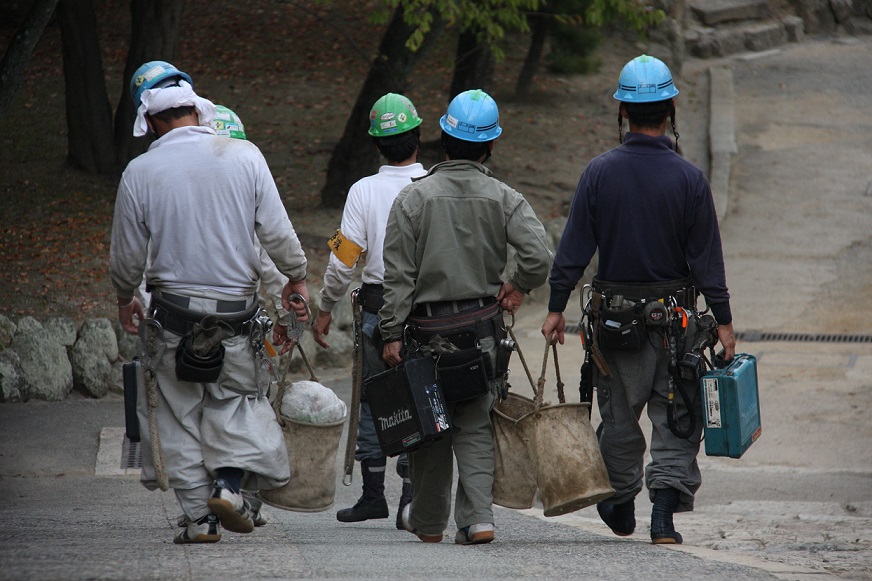The rapidly growing COVID-19 crisis has affected the construction industry across the world, with contractors and suppliers in uncertainty and not knowing what their next step would be. The construction sector has completely shut down or experiencing lengthy delays, and experts expect that the situation will only worsen in the upcoming months.
Every company across the industry is holding on to every bit of cash possible, resulting in payment delays and legal complications. COVID-19 has worsened the already bad cash flow system in the construction industry, rendering companies to take legal measures to protect their payment and avoid a downturn. The global pandemic really presents a challenge, unlike any other.
Contractors Responding to Coronavirus (COVID-19) Crisis
Your business can survive just like many others in the construction sector in the face of the current pandemic. You mustn’t end up making mistakes that would result in a downturn or a complete shutdown of your business. Here is a list of things that contractors are doing to survive in the challenging year ahead of them.
1. Analyze Contractual and Legal Details of Projects
You have construction contract obligations and legal issues that you need to address RIGHT NOW. Carefully assess your professional obligations under the contract and laws under your local jurisdiction to make sure you are protected against all potential negative impacts that you may encounter in the coming weeks.
Pay attention to local orders that impact your work and review mechanics lien laws of your state and see if you can continue your work under safety regulations. Contact your union labor leaders and stay informed about their position on the crisis. The most important thing is to review the force majeure provisions under the contract to see if the contract can be void or subject to legal delays. We recommend that you consult a construction attorney or a professional on this stuff before moving forward.
2. Create Plan for Partial/ Full Closure of Projects
Project safety is a top priority in the construction industry, but you might want to put the project on hold for the safety of your workers and to avoid cost overruns. Advice your clients and subcontractors to prevent affected or ill people from working and advise them to stay at home. If you have affected workers, identify who they worked with and where to limit exposure.
Public safety is the primary concern these days, so make sure to secure the project site, including equipment and construction material against all access. Keep a copy of your latest construction schedules, including project progress, and plans to decide whether to close the project or fully for the next few months partially. Make sure to track all dates, including suspension dates, and review your contract in case you need to terminate the contract.
3. Develop a Plan for Your Employees
As the coronavirus continues to spread with countries facing second waves of the virus, you need to assess whether your employees may continue work under government orders. Now is the time to decide whether you want your employees to continue the work and how you will take responsibility in case someone falls ill at the site. According to AGC, 40% of the construction companies in the US alone have reported layoffs.
Consult your insurance company regarding employer liability insurance and compensation relating to COVID-19. Educate your employees regarding the necessary safety measures and develop a plan where social distancing cannot be followed. Take your employees to feedback regarding work under such circumstances and provide them with a safe working environment. You can also support some personnel to work remotely.
4. Maintain Liquidity
As the crisis continues, contractors need to manage fixed costs associated with everything from equipment to property. You need to make some hard choices to cut extra expenditure and save resources. You need to quantify how much your liquidity and margin will suffer if you decide to maintain certain fixed costs in times of a downturn.
It is natural to hold on to your employees because it might be difficult to replace them when the economy recovers. Before making the decision, ask yourself how much liquidity and cash flow will be affected if you retain your personnel. In times when there is no incoming revenue, you have to protect your profits and cash reserves. One of the easiest ways to manage liquidity is by making adjustments to personnel as compared to any other fixed asset.
5. Securing Payment
If you are waiting to get paid for a project, now is the time to consult a Delay expert and secure your payment before you get burned. Whether you get paid, and when you get paid depends on what you do NOW. If you want to secure payments, send preliminary notices on all jobs, and when payment is threatened, file a mechanics lien right away.
In the face of the current crisis, you will see your payment being delayed because contractors and GC’s are facing a credit crunch, or filing for bankruptcy. Therefore, send preliminary notices today to keep your right to file a lien if needed. If the payment issue is still unresolved, file a mechanics lien right away or be ready to face a downturn. Consult with a Construction claim expert right away and protect your business.
Protect your Business!
While the current situation is still uncertain and the ultimate impact of the coronavirus on construction business is unknown, few things are entirely sure: Construction businesses will face severe cash flow issues in the next few months, but there are ways to protect your business and stay afloat during the crisis.
Don’t take any chances, and take actions to survive in the face of performance challenges and economic shocks.
